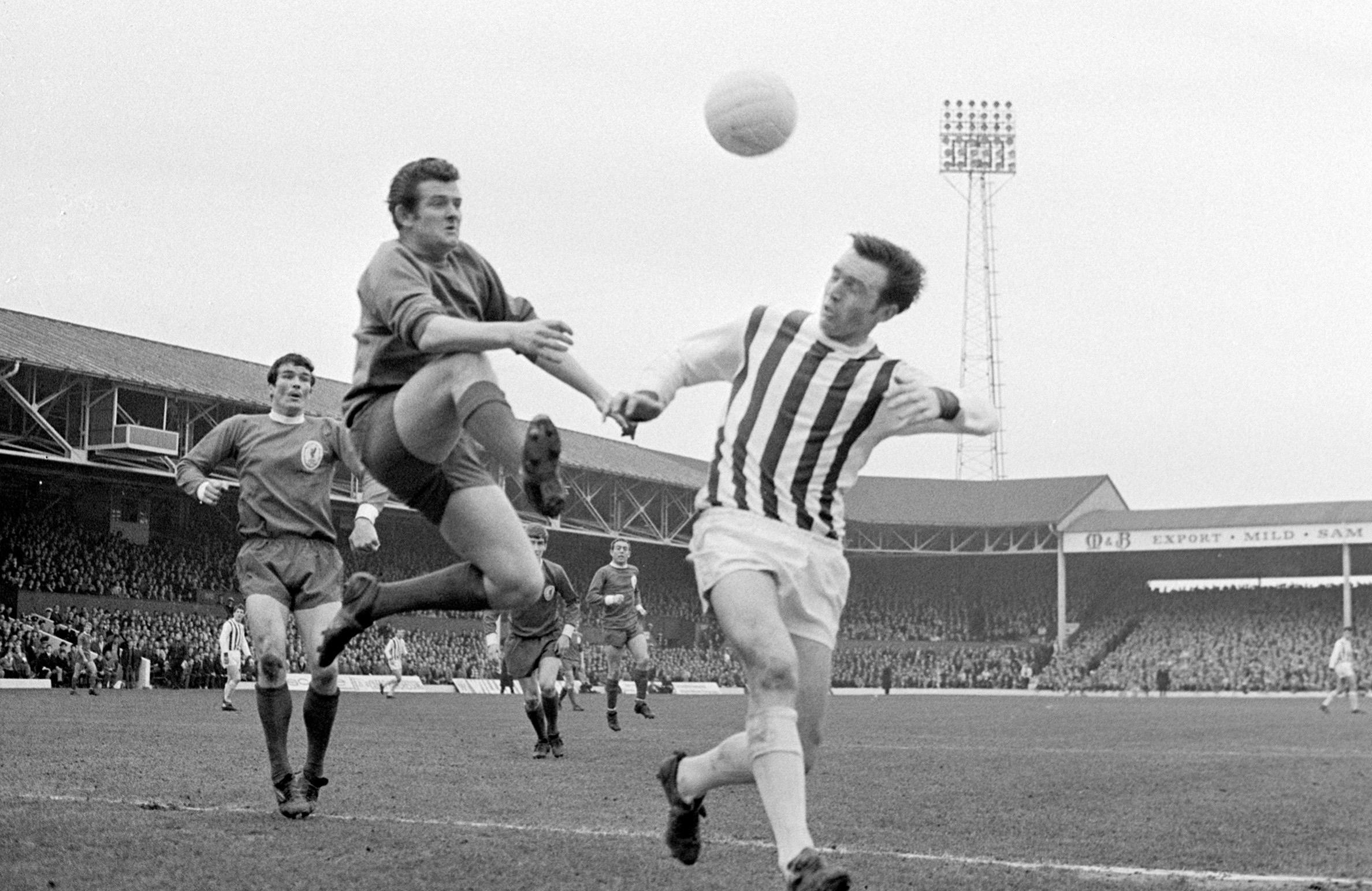New study shows link between football and dementia

Former footballers are approximately three and a half times more likely to die from neurodegenerative disease than the general population, according to a new study.
The study, commissioned by the Football Association and the Professional Footballers’ Association, comes 17 years after former England and West Brom striker Jeff Astle died with what a coroner described as an “industrial injury”.
Titled ‘Football’s Influence on Lifelong Health and Dementia Risk’ – or FIELD for short – and commissioned in November 2017, the study was led by consultant neuropathologist Dr Willie Stewart of Glasgow University.
It assessed the medical records of 7,676 men who played professional football in Scotland and were born between 1900 and 1976, with their records matched against more than 23,000 individuals from the general population.
#dementiainfootball 💔💔 pic.twitter.com/HPTW0dWXgw— Dawn Astle (@DawnAstle9) October 21, 2019
“My overall feeling is that I am staggered even though my own research and instinct was always that there was a serious problem,” said Dawn Astle, Jeff’s daughter, who has been campaigning since the death of her father for football to research into this area.
“There will be no celebrations. It doesn’t bring my dad back, it won’t bring any other dads and husbands back. We knew dad could not be the only one. We just wanted that question answered.
“We just wanted to see that football cared enough to find out the scale of the problem, to do the right thing and be there for these people when they need them most. Whatever they do, it must be across all parts of the game.
Get FourFourTwo Newsletter
The best features, fun and footballing quizzes, straight to your inbox every week.
“You can’t assume it is not in grassroots and there is no evidence it is generational or that it was the old leather ball. And these players who have suffered dementia must not be a statistic – they must never be forgotten. They remain in the consciousness of the game.”

Stewart’s findings report that the “risk ranged from a five-fold increase in Alzheimer’s disease, through an approximately four-fold increase in motor neurone disease, to a two-fold Parkinson’s disease in former professional footballers compared to population controls”.
Since Astle’s death, the families of dozens of other ex-footballers, including several from England’s 1966 World Cup-winning squad, have come forward to reveal their stories of dealing with dementia and related illnesses.
FA chairman Greg Clarke said: “The whole game must recognise that this is only the start of our understanding and there are many questions that still need to be answered.
“It is important that the global football family now unites to find the answers and provide a greater understanding of this complex issue. The FA is committed to doing all it can to make that happen.”
Today, the FIELD study – funded by the PFA and The @FA – has announced its findings regarding ‘Football’s InfluencE on Lifelong outcomes and Dementia risk’. Here, Gordon Taylor, explains the study. pic.twitter.com/FCTQthZt0J— PFA | Professional Footballers' Association (@PFA) October 21, 2019
PFA chief executive Gordon Taylor said it was “incumbent on football globally to come together to address this issue in a comprehensive and united manner”.
He added: “Research must continue to answer more specific questions about what needs to be done to identify and reduce risk factors.”
Although footballers had a higher risk of death from neurodegenerative disease, they were less likely to die of other common diseases, such as heart disease and some cancers, including lung cancer.
The study found that deaths in ex-footballers were lower than expected up to age 70, and higher than expected over that age.
‘A much-needed piece of research’— The FA (@FA) October 21, 2019
Dr Stewart said in a statement: “An important aspect of this work has been the ability to look across a range of health outcomes in former professional footballers. This allows us to build a more complete picture of health in this population.
“Our data shows that while former footballers had higher dementia rates, they had lower rates of death due to other major diseases.
“As such, whilst every effort must be made to identify the factors contributing to the increased risk of neurodegenerative disease to allow this risk to be reduced, there are also wider potential health benefits of playing football to be considered.”
The FA said the study’s findings had been reviewed by an independent Medical and Football Advisory Group, which recommended reissuing the current FA concussion guidelines and best-practice advice for coaching heading and called for further steps to improve head injury management, like supporting UEFA’s proposals to introduce concussion substitutes.
The governing body said it had written to FIFA and UEFA to offer its full support on future research in this area as well as to share the findings of the study with them.
FourFourTwo was launched in 1994 on the back of a World Cup that England hadn’t even qualified for. It was an act of madness… but it somehow worked out. Our mission is to offer our intelligent, international audience access to the game’s biggest names, insightful analysis... and a bit of a giggle. We unashamedly love this game and we hope that our coverage reflects that.

